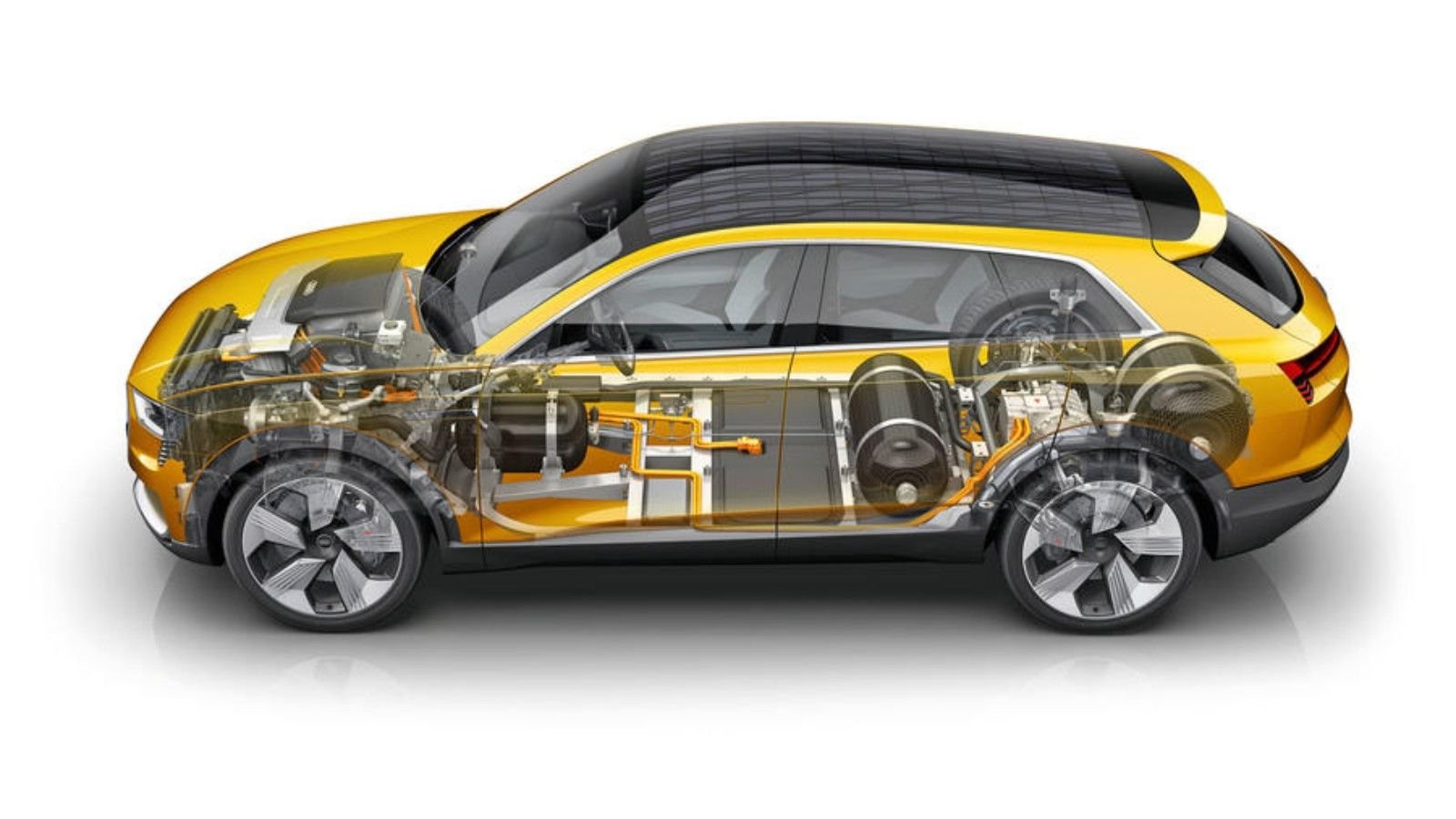Audi isn't Giving up on Hydrogen Power
There are concerns that the production of electric cars may be hindered by a lack of enough resources to produce enough batteries. Audi plans to tackle this through its h-tron program which focuses on hydrogen fuel cells.














Natural Resources
There are looming doubts about whether electric cars will be able to meet ever-growing customer expectations. Materials needed are scarce. This has greatly affected the supply of batteries in large volumes. As such, automakers are looking into avenues through which natural resources can be used to produce batteries. According to Bram Schot, Chairman at Audi, the brand plans to increase the development of their hydrogen fuel cell technology with the goal of providing alternative energy sources.
Photos Courtesy of Audi
Standing Out in the VW Group
Audi also plans to revive its h-tron program in an effort focused on making its hydrogen fuel cell development as competent as possible. The automaker will be the focal point for all things hydrogen in the Volkswagen Group. This comes after a recent legislation by the Chinese government favoring emission-free technology in commercial vehicles and cars. Hydrogen-powered vehicles could start enjoying subsidies that are currently granted to electric vehicles in China. With more than 30% of its sales taking place there, Audi wants to be a leading force in what's predicted to be the largest market for hydrogen-powered cars by 2021.
>>Join the conversation about Audi's hydrogen technology right here in Audi World.
More Resources
Schot further adds that Audi would like to hasten the development process. The automaker plans to make the hydrogen fuel cells a major priority. This means more money, manpower, and confidence will be put into the program. The aim is to build vehicles that have a great driving range and do not require to be recharged during long trips or in cold weather.
>>Join the conversation about Audi's hydrogen technology right here in Audi World.
A Pilot Model
A 6th-generation prototype running on hydrogen fuel cells could appear in late 2019. This comes after Audi announced that it plans to launch more than 12 electric cars by 2025. In addition, a limited fuel cell electric vehicle dubbed the Audi FCEV could be availed to customers by 2021. It will be part of Audi's lease program and will be produced alongside the A6, A7, and A8 at the Neckarsulm plant.
>>Join the conversation about Audi's hydrogen technology right here in Audi World.
Partnership with Hyundai
No one knows when Audi will start producing the Audi FCEV in high numbers. Schot, however, is quite confident that this could happen between 2025 and 2030. Development of the fuel cell technology falls under a cross-licensing contract signed together with Hyundai. Hyundai introduced an autonomous, fuel-cell-electric driven Nexo SUV that comes in three variants. It covers 372 miles per charge and is quite similar to Audi's h-tron. The joint collaboration was announced in June last year and is expected to grow until Audi achieves its goal.
>>Join the conversation about Audi's hydrogen technology right here in Audi World.
Range and Refueling Time
When Audi unveiled the h-tron concept at the Detroit Auto Show in 2016, it claimed that the car would have a range of 373 miles. In addition, it would only require four minutes to recharge. The concept had dual electric motors with one placed on each axle. Combined, output stood at 308 horsepower. Battery capacity is expected to be between 35-40 kWh depending on the model. This, however, can only provide a range of 93 miles and is way less than the e-tron's 85 kWh.
>>Join the conversation about Audi's hydrogen technology right here in Audi World.
Effective and Efficient
According to Schot, hydrogen power is one of the most effective and most efficient alternatives to electric-powered vehicles. Audi's 6th generation system will include a battery that will be part of a hybrid system. Buyers will also be able to plug it in for charging.
>>Join the conversation about Audi's hydrogen technology right here in Audi World.
For help with your do-it-yourself maintenance and repair project, please visit our how-to section in the forum.
